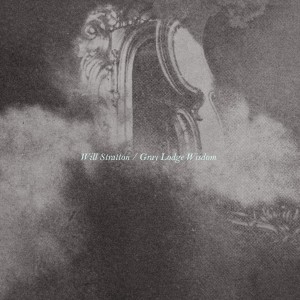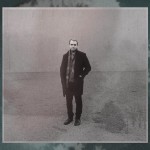
Artist
IMAGES: To download, click above
PHOTO CREDIT: (top) Ruben Vandermeulen, (bottom) Blair Patterson
LINKS:
Will Stratton
Striking the right tone is important for Will Stratton. Over the course of five full-length albums, several online-only releases and national attention from outlets like NPR, Stratton has strived to impart a balance between the eloquent lyrical perspectives festooning his music, and his ever-evolving approach to multi-tiered folk. So when his new LP, Gray Lodge Wisdom, was written and recorded while Stratton underwent a year of chemotherapy, several extensive surgeries, and other treatment stemming from a diagnosis of late-stage testicular cancer in 2012, Stratton is understandably conflicted about the way his new record might come across.
“I hope that this doesn’t come across as a Record About Cancer, because it’s not,” explains Stratton. “I think that it informed the process and the sound of the record more than it affected the content of some of the songs.”
Through repeated listens to Gray Lodge Wisdom―scheduled for self-release stateside on April 29, 2014―that sentiment becomes crystal clear via plaintive, sprawling folk odes confronting the light, the dark, and the void between those two spectrums. Stratton moved cross-country from Brooklyn to Washington state for his convalescence, fashioning an ad-hoc recording studio in his parent’s basement in between chemotherapy infusions to lay to tape the songs that would make up Gray Lodge Wisdom. Stratton made his way back east to Brooklyn in late 2013, booking time at Queens recording studio The Buddy Project to put the final touches on an album he stresses was really a collection of memories and aspirations rather than a manicured, cohesive statement.
“This album is, in many ways, less ambitious than anything I’ve ever done before, because it’s a direct result of what I was going through,” relates Stratton, whose first album, What the Night Said, was released when he was only 20 years old. “Once I was done writing the songs, I felt like the act of actually getting them down on tape was an afterthought. The fact that I’d made them and could put them behind me was the important thing.”
With the album halfway done upon his arrival in NYC, Stratton enlisted the help of friends like Tamara Lindeman (The Weather Station), Nico Muhly, Hollie Fullbrook (Tiny Ruins), Aaron Roche and Sarah Kirkland Snider to flesh out string arrangements and additional vocals.
The album title itself, as Stratton explains, came by way of repeated, bed-confined viewings of Twin Peaks―the Gray Lodge representing some altogether different realm of good and evil, not quite black or white.
“What struck me about what I was going through was that all the notions of good and bad and pain and pleasure, darkness and lightness, were all gone,” says Stratton. “They no longer made any sense to me because my frame of reference was completely different. The Gray Lodge was the hospital for me, and the Northwest in general―this really gray, dark, rainy place where I was going to heal. The album title is about coming out of that experience feeling a bit wiser than I was before.”
That wisdom cascades in and around Stratton’s masterful fingerstyle on acoustic guitar, utilizing alternate tunings and exploiting unspoiled, fleeting panoramas of foreign chords and ethereal strings. Gray Lodge Wisdom, for all its heavy source material, is just as much a gorgeous-sounding snapshot of a young man growing up and greeting the world.
“I think this is the most happy or positive record I’ve ever made,” says Stratton. “It’s really about the ineffable clarity that comes from the luxury of being a survivor, more than it is about my illness itself.”
Stratton’s clarity is potent from the start. The title track―written in the final days of his treatment―opens with the line, “Why sing about death when I just almost died?/Why sing about life when I’m still alive?” The song’s painfully autobiographical questioning of forging ahead with the thrum of one’s creative output is stunningly self-aware, and an apt portent for the remaining sentiments found on Gray Lodge Wisdom.
“Fate Song”―an equally unabashed meditation on survival―opens with a swirling, ambient soundscape, sounding like strands of Stratton’s psyche becoming realigned toward some semblance of normalcy. Soon, those digital clouds clear to reveal Stratton’s sensational neo-primitive finger-style, crooning, “I’ve got no plot to my name/no fortune waiting for me still/and my own self to blame/for the fear that almost got me killed/for the surgeons’ blade that opened up my veins/so I must thank some god that I’m alive today.”
It is in the catharsis between the notes, between the lines of his wonderfully layered compositions, that Stratton’s efforts on Gray Lodge Wisdom are truly heard. The rest is adornment, a soundtrack to the pieces of memories he wants to take away from an experience only recently relegated to the rearview.
“I feel like I have to choose the things to hold onto that I want to remember and that I want to continue to make a part of who I am,” explains Stratton. “Coming out on the other side of this and having an immense feeling of gratitude is a pretty powerful thing.”



